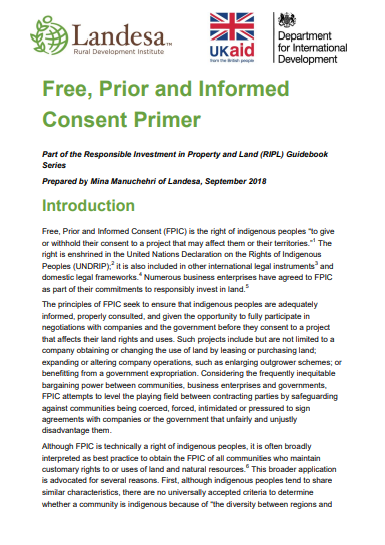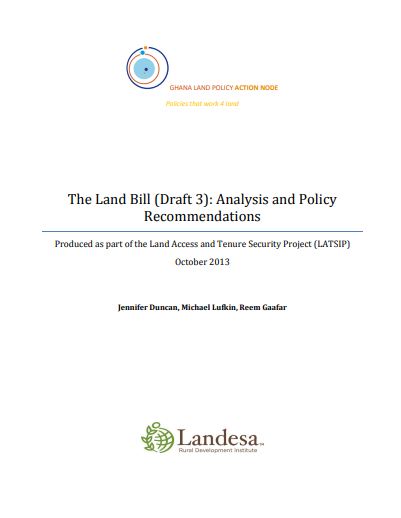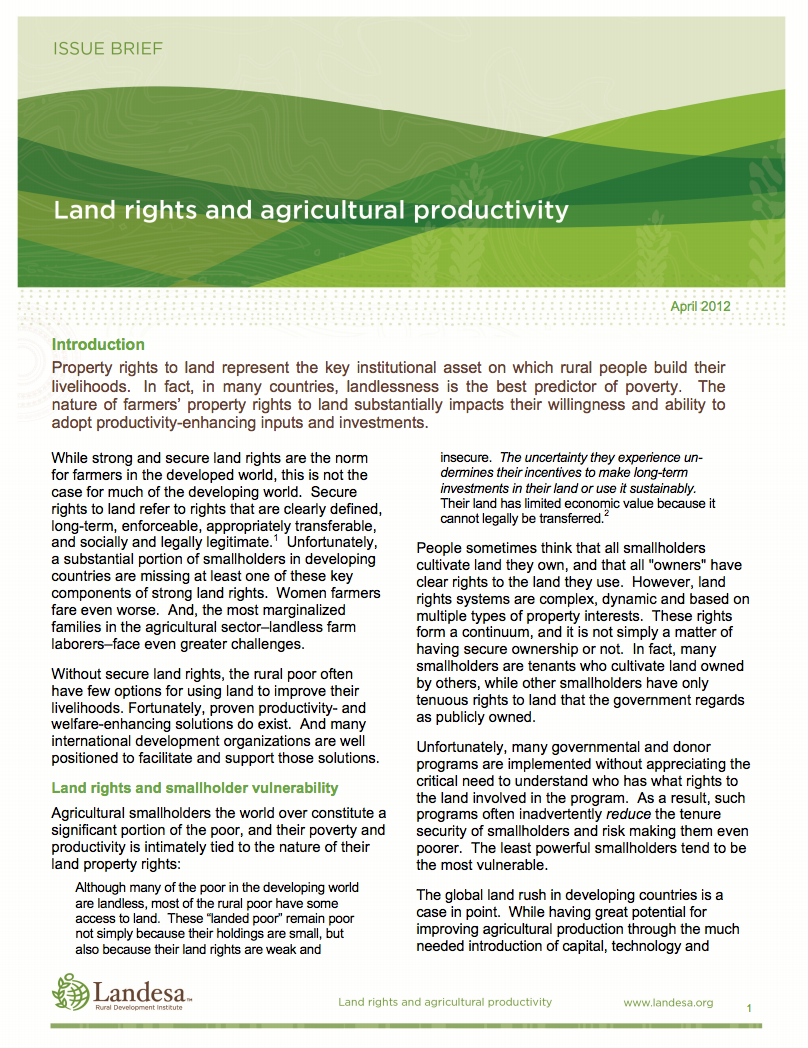About Landesa
Landesa partners with governments and local organizations to ensure that the world’s poorest families have secure rights over the land they till. Founded as the Rural Development Institute, Landesa has helped more than 105 million poor families gain legal control over their land since 1967. When families have secure rights to land, they can invest in their land to sustainably increase their harvests and reap the benefits—improved nutrition, health, and education—for generations.
Resources
Displaying 81 - 85 of 107SECURITY FOR GIRLS THROUGH LAND | SECOND PILOT ASSESSMENT (2012-2013)
January 14, 2014 — This study analyzing the impact of the Girls Project, a pilot program designed and implemented by a partnership between the Indian government and Landesa, has found that participating girls are more likely to: stay in school longer, marry later, inherit land, and have an economic asset in their name.
THE LAND BILL (DRAFT 3): ANALYSIS AND POLICY RECOMMENDATIONS
October 2013 — This report analyses Ghana’s Land Bill, Draft 3, and provides recommendations for how the Bill could more clearly and adequately accomplish its stated purpose and reflect the principles and mandates of the Constitution and National Land Policy. Appendix I contains a summary of all recommendations. This report was produced as part of the Land Access and Tenure Security Project (LATSIP).
Land Rights and Agricultural Productivity
Property rights to land represent the key institutional asset on which rural people build their livelihoods. In fact, in many countries, landlessness is the best predictor of poverty. The nature of farmers’ property rights to land substantially impacts their willingness and ability to adopt productivity-enhancing inputs and investments.








